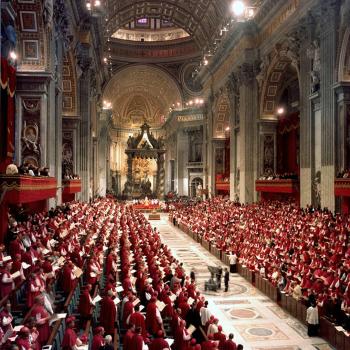J.K. Rowling, author of the Harry Potter novels, the top-selling fictional narrative of all time, wrote novels that became increasingly topical as the post-9/11 decade went on. She introduced themes of government repression, media manipulation, and torture into the three Potter books written following 9/11, and revealed that these were issues that were personally important to her. In a commencement speech she gave for 2008 graduates at Harvard University, she described how her time working at Amnesty International "informed much of what I subsequently wrote" in the Potter novels, and she lamented the fact that people "can refuse to hear screams or to peer inside cages; they can close their minds and hearts to any suffering that does not touch them personally; they can refuse to know," even though doing so amounts to collusion with monstrous acts such as torture and murder. This collusion—or resistance to it—is dramatically depicted in Harry Potter and the Order of the Phoenix (2003), Harry Potter and the Half-Blood Prince (2005), and Harry Potter and the Deathly Hallows (2007), and in the equally-successful film adaptations that followed.
While Rowling never mentioned Prime Minister Tony Blair or President Bush specifically, Rowling's villains in the Harry Potter series took on many of their—and their followers'—qualities or replicated their actions, and many in Britain explicitly identified the "Muggle Prime Minister" depicted at the beginning of Harry Potter and the Half-Blood Prince with Blair. (James Tapper wrote in the Sunday Mail that perhaps the book should have been called "Tony Blair And The Thinly Veiled Caricature.")
More important than simply suggesting the flaws of contemporary political figures, however, is Rowling's depiction of real evil in the wizarding world where the novel takes place. The cruciatus curse—the torture curse—is one of three Unforgiveable Curses in the Harry Potter mythos, the other two being the curse compelling people to act against their will and the one killing them outright.
All three of the Unforgiveable Curses speak of the imposition of power on those who are weaker by those who are stronger, but it is cruciatus that may be of most interest to us. Rowling's dramatic depiction of torture by representatives of the government against Harry Potter and some of the books' other heroes spoke to millions of readers about the moral danger of evil means employed toward even supposedly righteous ends. And if ever a character could teach us about how the certainty that one is right may lead one to do what is wrong, it is the loathsome government minister Dolores Umbridge, a major character in both Harry Potter and the Order of the Phoenix and Harry Potter and the Deathly Hallows, who represents the banality of evil and how easily people can become complicit in immoral actions when they refuse to question them.
The decade's other monumentally-popular work of fiction, the Twilight series, may at first glance seem somewhat baffling in a post 9/11 world; my own intense dislike for it long caused me to wonder what sorts of needs it might be serving. But on reflection—and a little meditation to calm my fevered dislike—I'd suggest that while its sparkly vampires seem to be merely escapist fare for girls and women (admittedly, "mere" escapism in hard times is certainly a cultural need), the underlying message of Twilight is that we live in a world more frightening and full of hidden dangers than we can possibly know.
In Twilight's world, bad vampires want to suck your blood. There are werewolves, and behind the scenes, even worse vampires. Perhaps in such a dangerous world, what we would ordinarily regard as a bad choice may actually turn out to be for the best. Edward may be a vampire, but he is handsome, powerful, and willing to commit violent acts to keep Bella safe. What used to seem evil may now seem the best choice in fearful times. To be loved and protected is a compelling fantasy for anyone in a threatening world—whether or not you like the Twilight novels and movies.
Next week we'll consider how we might heal and move forward from the past decade. Until then, may God calm our fears, and may we feel God's presence on even our most trying days. In the name of the most Holy One: Creator, Redeemer, and Sustainer. Amen.





